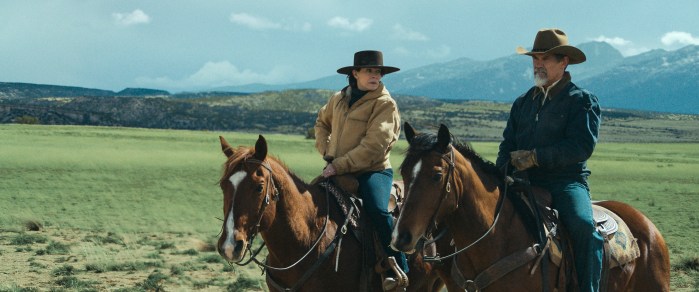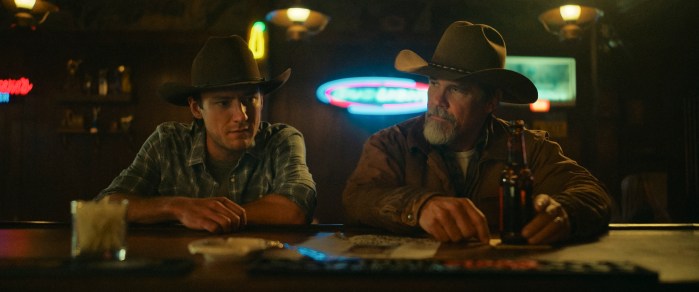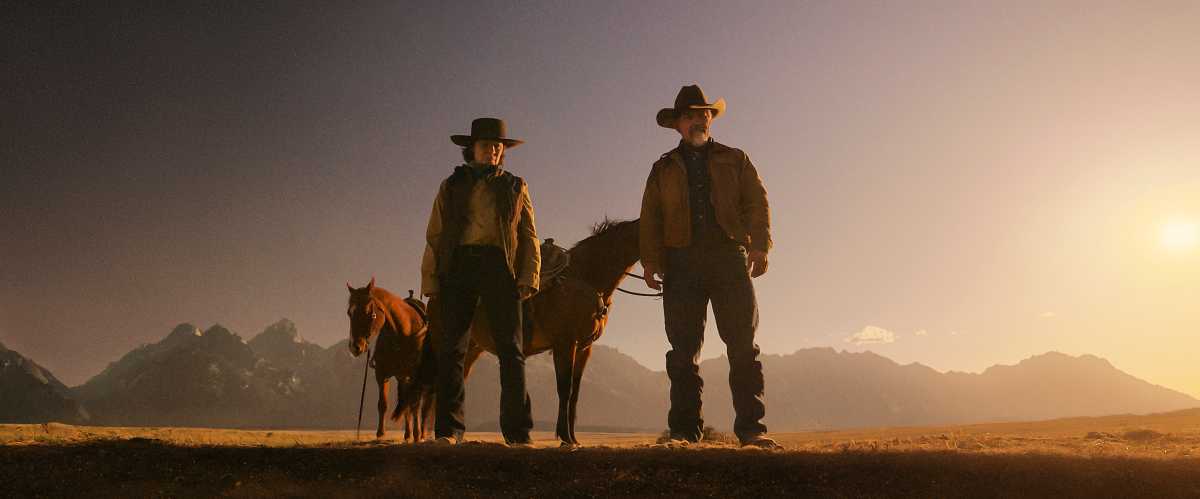In Season 1 of Prime Video’s hit series, ‘Outer Range,’ viewers were introduced to the Abbott family, with Josh Brolin’s character, Royal, as the fatherly figure. The show may seem like an introspective view of the lives of the Abbotts and their neighbors in ranch-heavy Wyoming, but you find out early on that nothing is quite as it seems—especially when you get a look at the massive hole residing on the Abbott’s land that seems to have some sort of time-weaving elements to it.
The questions surrounding the sci-fi elements of the show are blended with the inner-dramas of the town and its people, and the sophomore season of ‘Outer Range’ certainly expands on both sides of the coin in terms of plot. To blend that all together and to keep the momentum strong from the first to second season required some creativity and adaptability, especially from its new showrunner, Charles Murray.
To chat more about signing on with the show and where it’s headed this go-around, Murray sat down to dive a little deeper into ‘Outer Range’ Season 2.

When you first signed on as showrunner for Season 2, what were the immediate elements of the show or storylines that you were excited to flesh out in this role?
I don’t want to BS you, so I’m literally going to tell you the truth: All of it. There were moments from each storyline that I thought, oh, we can build on that, we can build on that, and we can build on that. It was all interesting to me, even to something as simple as an argument in Season 1 that Royal and Cece (Lili Taylor) have in the barn where he says, “I’m trying to tell you the truth.”
It would be simple things like that that I thought, oh, you can kind of build their relationship in Season 2 off of that moment. There’s a moment in Season 1 where Perry (Tom Pelphrey) and Rhett (Lewis Pullman) are sitting in the kitchen talking about being apologetic to each other after their big fight. So Perry jumps in the hole, and well now Rhett thinks he’s gone off, but is he really gone off? So it was just literally looking at little moments and saying, how can I use them as connective tissue to where I need the characters to go in Season 2? It was all kind of delicious.
I talked to Josh Brolin for Season 1 of the show and he mentioned a lot about how unique the experience was on set, and it almost felt like a theater environment. Did that ring true for you for Season 2?
The actors definitely are a group, and I think you had Covid, and that brought them closer [together] and trying to figure out what a massive show like this is in the first season—and I don’t think that they lost a bit of that stepping in Season 2. I feel like they were gracious enough to allow me into it because I’m a new dude and it’s like, who’s the new guy and what’s he trying to do to something that we love?
So a lot of the conversations with the actors were just: Let’s talk about your character, let’s understand where they’re coming from and your ideas on where you think that they’re going and stuff like that. So, it was a very collaborative time. And in that, I feel like what Brolin was talking about in Season 1 was definitely continued into Season 2, and I was just happy to be a part of it and help mature the show from where it was [to] what we turned it into.
We didn’t move away from anything tonally. We didn’t suddenly veer into some, well, we’re done with that, we’re going in this direction. We did none of that. We just kind of kept growing it organically as much as we could.

Something I love about the show is that it has a lot of grounded elements to it. It’s these two families and these relationships in this small town, but then there are these fantastical elements and they don’t seem out of place to me. As a showrunner for this show, especially coming in for a second season where all this is already set up, how do you get the tone right to make it all cohesive?
A lot of it is just behind-the-scenes in a way, [and] a lot of this is in my TV career. The two biggest shows that I was a part of, I came into late. So my first show was ‘Third Watch’ and they had done three years, and then I came for the last three years. After that, the next big one was ‘Sons of Anarchy,’ I came in Season 6 and 7. So you have to learn how to fold into stories that have already been told and expand upon them.
I had great training that way, but the reason that I was drawn to the show was the very thing that you’re talking about, because that’s the big influence. I would say that growing up as a blue-collar kid, being in situations that had unforeseen circumstances happened and you have to make a big shift, a life shift in certain things. That’s what I recognized in the first show. It’s the first season: There’s this big ass sink hole with time elements in the back and my son just accidentally killed someone—I can’t separate those two things. I have to deal with them concurrently.
So once I saw that that was how they were dealing with the show, I felt comfortable stepping into that. And I think that that’s kind of how I see life anyway, because I was raised in the land of Steven Spielberg where Roy Scheider is trying to be a good sheriff, and there’s a big ass shark out there. It’s eating people and you got to keep the people calm and eventually, you got to go and fight this shark with this nebbish scientist and this old sea hand, and while we’re waiting on the shark, let’s get to know each other kind of thing. So that sort of storytelling has always been appealing to me.
Catch Season 2 of ‘Outer Range‘ on Prime Video when its drops May 17.




















